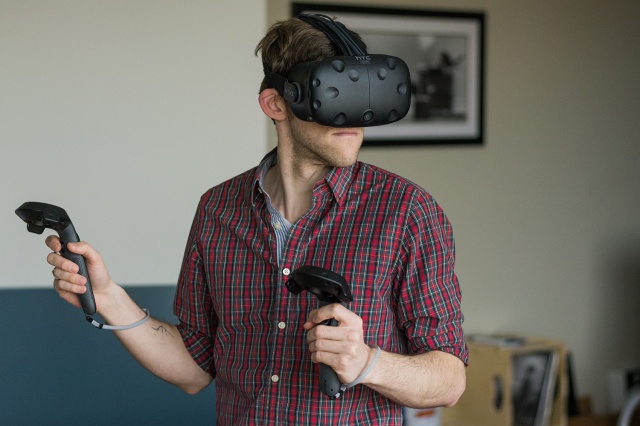
It’s hoped that eye-tracking technology could help improve the graphic quality of games designed to be played using virtual reality headsets. By tracking where the user is looking, it’s possible to render areas that are outside the viewer’s line of sight with less detail, freeing up hardware resources.
As VR technology becomes more advanced, it’s going to become more and more difficult for PCs to keep up with increased display resolutions. Including eye-tracking capabilities in future VR headsets could help counteract the need for more potent hardware.
SMI has already collaborated with some of the biggest names in tech on various VR concepts. In February, Google Research showed off a project that used headsets modified by the company to maintain visibility of the user’s face, even while they are embroiled in a VR experience.
SMI will also showcase the results of its collaboration with ARM at its own GDC booth, according to a report from Road to VR. The company has been working with the processor specialists to implement eye-tracking on mobile VR devices, which stand to benefit greatly from the technology, given that they are often far less potent than purpose-built gaming PCs.
Valve’s decision to introduce support for eye-tracking into the OpenVR API certainly suggests that the company is confident in the technology’s potential to improve VR experiences. However, even though Vive headsets with eye-tracking capabilities are being shown at GDC, there is no confirmation that the next iteration of the device will be outfitted with this functionality.


